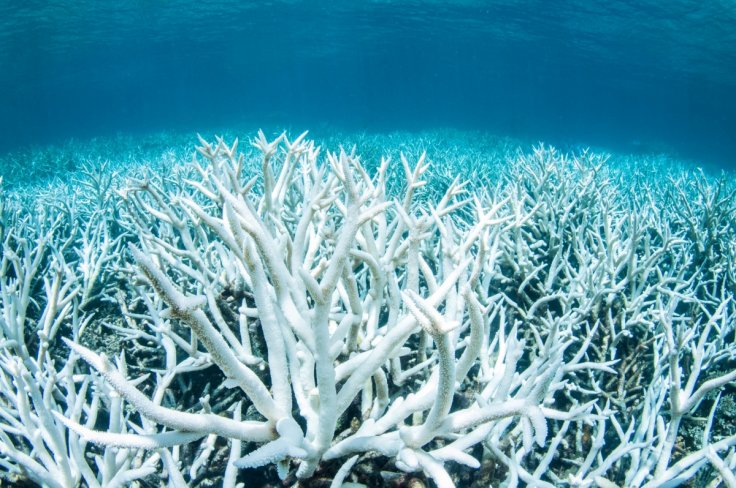Australia's iconic Great Barrier Reef, a World Heritage site recognised for its "enormous scientific and intrinsic importance", has suffered yet another mass coral bleaching for the third time in five years, scientists said on Thursday.
David Wachenfeld, chief scientist of the Great Barrier Reef Marine Park Authority, said in a video posted on the official website: "We can confirm that the Great Barrier Reef is experiencing its third mass bleaching event in five years."

Warmer sea temperatures to be blamed?
According to reports, the warmer sea temperatures, especially in February, have apparently caused huge coral loss across the world's largest reef system. The scientists said that they have detected widespread bleaching, including extensive patches of severe damage. However, they have also found a few healthy pockets amid the reef, which covers over 2,300km (1,400 miles).
Similar events in the year 2016 and 2017 had damaged two-thirds of the reef, but it seems that more areas have been damaged this time. "The reef had only just begun recovering from impacts in 2016 and 2017 and now we have a third event," chief scientist David Wachenfeld told the BBC.
"Climate change is making the extreme events that drive those impacts both more severe and more frequent, so the damage in an event is worse," Wachenfeld added.
Needs strongest possible action
The Great Barrier Reef is roughly estimated to give support to thousands of marine species, and it plays quite a significant role in the lives of some of the aboriginal groups and the natives of the Torres Strait Islands, located between the Australian mainland and New Guinea.
Wachenfeld added: "The reef is still a vibrant, dynamic system but overall, with every one of these successive events, the reef is more damaged than previously. We need to take these events as global calls for the strongest possible action in climate change."









